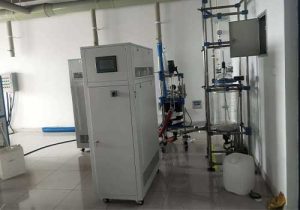chiller temp
Chiller Temp: The Complete Guide to Temperature Management in Chiller Systems
Proper temperature control is fundamental to chiller performance, energy efficiency, and equipment longevity. This comprehensive guide explores all aspects of chiller temperature management.

- Standard Temperature Parameters
A. Chilled Water Temperatures
Comfort cooling (HVAC): 6-7°C supply, 12-13°C return (ΔT of 5-6°C)
Process cooling:
Food processing: 1-4°C
Pharmaceutical: 2-8°C
Plastic molding: 10-15°C
Low-temperature applications:
Ice rinks: -9 to -12°C
Industrial freezing: Down to -40°C
B. Condenser Temperatures
Water-cooled systems:
Entering water: 29°C (85°F)
Leaving water: 35°C (95°F)
Air-cooled systems:
Condensing temp: Typically 15-20°C above ambient
C. Refrigerant Temperatures
Evaporating temp: 3-6°C below chilled water temp
Condensing temp: 5-10°C above condenser water temp

- Temperature Control Strategies
A. Setpoint Optimization
Reset strategies:
Ambient temperature reset
Load-based reset
Time-of-day adjustments
B. Variable Speed Control
Compressor speed modulation
Pump and fan VFD adjustments
Benefits: 20-30% energy savings
C. Staging Techniques
Multiple chiller sequencing
Lead/lag rotation
Load balancing algorithms
- Critical Temperature Relationships
Parameter Relationship Ideal Range
Chiller ΔT Supply vs. return 5-6°C
Approach temp Chilled water vs. evaporating temp 2-3°C
Condenser approach Condenser water vs. condensing temp 3-5°C - Troubleshooting Temperature Issues
A. High Chilled Water Temp Causes
Low refrigerant charge
Fouled evaporator tubes
Excessive load
Control system faults
B. Low Condenser Pressure Issues
Low ambient conditions
Overcapacity
Expansion valve problems
C. Temperature Differential Problems
Low ΔT:
Bypass mixing
Sensor errors
Flow rate issues
High ΔT:
Low flow conditions
Air in system
Load imbalances

- Advanced Temperature Management
A. Predictive Control Algorithms
Machine learning-based optimization
Weather forecasting integration
Load prediction models
B. Thermal Energy Storage Integration
Ice storage systems
Chilled water storage
Temperature staging benefits
C. Smart Monitoring Systems
Real-time temperature tracking
Automated alerts
Performance analytics
- Industry-Specific Temperature Requirements
Industry Typical Temp Range Special Considerations
Data Centers 10-15°C Precision control critical
Hospitals 6-8°C Strict humidity control
Breweries -1 to 4°C Fermentation control
Chemical -20 to 30°C Wide variance by process - Energy Efficiency Considerations
1°C increase in chilled water temp = 2-3% compressor energy savings
1°C decrease in condenser water temp = 1-1.5% efficiency improvement
Optimal ΔT management can reduce pump energy by 15-20%
- Safety Considerations
Freeze protection measures
Low refrigerant temperature limits
High pressure cutouts
Oil temperature monitoring
- Future Trends in Temperature Control
Magnetic bearing chillers with precise temp control
IoT-enabled continuous optimization
Phase change materials for temp stabilization
AI-driven predictive maintenance
Conclusion
Effective chiller temp management requires understanding system interactions, implementing smart control strategies, and maintaining proper operating parameters. By optimizing temperature settings and responding to changing conditions, operators can achieve maximum efficiency while meeting process requirements. Regular monitoring and proactive maintenance ensure consistent performance across all operating conditions.
Related recommendations
portable water chiller system
803Portable Water Chiller System: A Comprehensive Guide Water is an essential resource, and its temperature can significantly impact various applications, from industrial processes to personal com...
View detailschiller items
312Chiller Items: A Comprehensive GuideIn the complex and vital world of cooling technology, chillers are indispensable for maintaining optimal temperatures in a wide range of settings, from commerc...
View detailshigh temperature test chamber
761Introduction to High Temperature Test Chambers High temperature test chambers are sophisticated devices designed to replicate extreme temperature conditions within a controlled environment. The...
View detailsHow Long Should the Chiller be Cleaned After Use?
1297How Long Should the Chiller be Cleaned After Use? After a normal operation of the chiller, it needs comprehensive maintenance and maintenance after running for a period of time. However, for...
View details
 LNEYA Chiller
LNEYA Chiller






HelloPlease log in